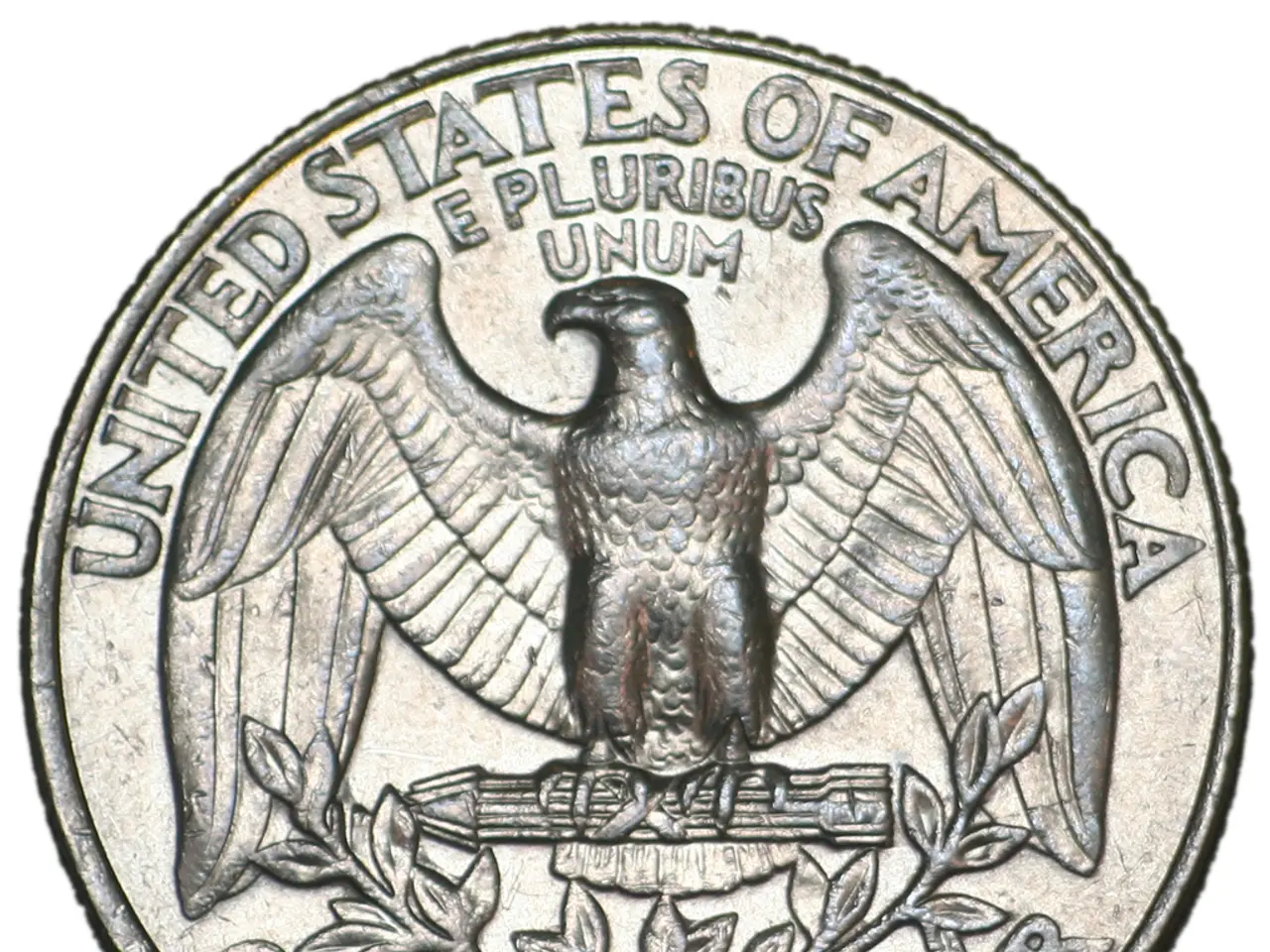Kazakhstan's National Bank initiated foreign exchange interventions attributable to the fluctuating value of the tenge.
The Kazakhstani tenge has been experiencing a significant depreciation in 2025, largely due to soaring inflation, fiscal overreach, increased money supply, and high import demand, despite favourable oil prices. Inflation surged to 11.8% in June, driven by utility reforms, VAT hikes, and imported inflation from Russia, while fiscal injections expanded 18% year-over-year, boosting import demand but not matched by domestic production growth [1][2][3].
To combat this trend, the National Bank of Kazakhstan (NBK) has taken several measures. They raised the base interest rate to 16.5% to curb inflation and attract capital inflows, though external factors limit its effectiveness. The NBK also sold nearly $1 billion from the National Fund and used a "mirroring mechanism" linking gold purchases to dollar sales to sterilize liquidity [2][4][5].
In response to increasing speculative pressure and low liquidity in the foreign exchange market, the NBK initiated direct foreign exchange market interventions on July 30, 2025, to stabilize the rate, restore balance in supply and demand, and prevent destabilizing fluctuations [2][4][5]. However, the underlying problem remains structural: fiscal growth and import demand continue to outpace domestic production and GDP, maintaining pressure on the currency.
The NBK asserts that the tenge is currently undervalued relative to fundamentals, and the depreciation partly reflects speculative behavior rather than economic fundamentals [4][5]. Since the start of the month, the tenge has weakened by 5.8%, and on July 30, the tenge reached 550 tenge per dollar [1].
The NBK resumed currency interventions, with the last such operations conducted in December 2024. The increase in demand for foreign currency is due to budget funds for infrastructure projects, increased imports, dividend payments, and tourist factors. However, the article does not provide new information about the causes of increased speculative pressure or low liquidity in the foreign exchange market [1].
References:
[1] Almaty Times. (2025, August 1). Kazakhstan's Tenge Hits Record Low Amid Economic Pressures. Retrieved from https://www.almatytimes.kz/news/kazakhstans-tenge-hits-record-low-amid-economic-pressures/
[2] Kazinform. (2025, July 31). NBK of Kazakhstan Starts Currency Interventions to Stabilize Tenge. Retrieved from https://www.kazinform.kz/2025/07/31/nbk-of-kazakhstan-starts-currency-interventions-to-stabilize-tenge/
[3] Financial Times. (2025, June 15). Kazakhstan's Inflation Surges to 11.8%. Retrieved from https://www.ft.com/content/62a9a68b-9b18-4068-b7e6-6515c15463e7
[4] NBK of the Republic of Kazakhstan. (2025, July 15). Statement by Governor of NBK on the Current State of the Tenge. Retrieved from https://www.nbk.kz/en/press-center/statements/statement-by-governor-of-nbk-on-the-current-state-of-the-tenge/
[5] Reuters. (2025, August 1). Kazakhstan's Central Bank Says Tenge Undervalued Amid Depreciation. Retrieved from https://www.reuters.com/article/us-kazakhstan-currency-idUSKCN25H227
- The National Bank of Kazakhstan (NBK) is attempting to address the depreciation of the tenge by implementing measures such as raising the base interest rate and selling currency reserves from the National Fund, which are actions typically employed in the banking and finance industry.
- Despite the increasing speculative pressure and low liquidity in the foreign exchange market, the NBK has identified a structural problem in Kazakhstan's economy, where fiscal growth and import demand continue to outpace domestic production and GDP, potentially impacting the stability of the industry, including banking and insurance.




